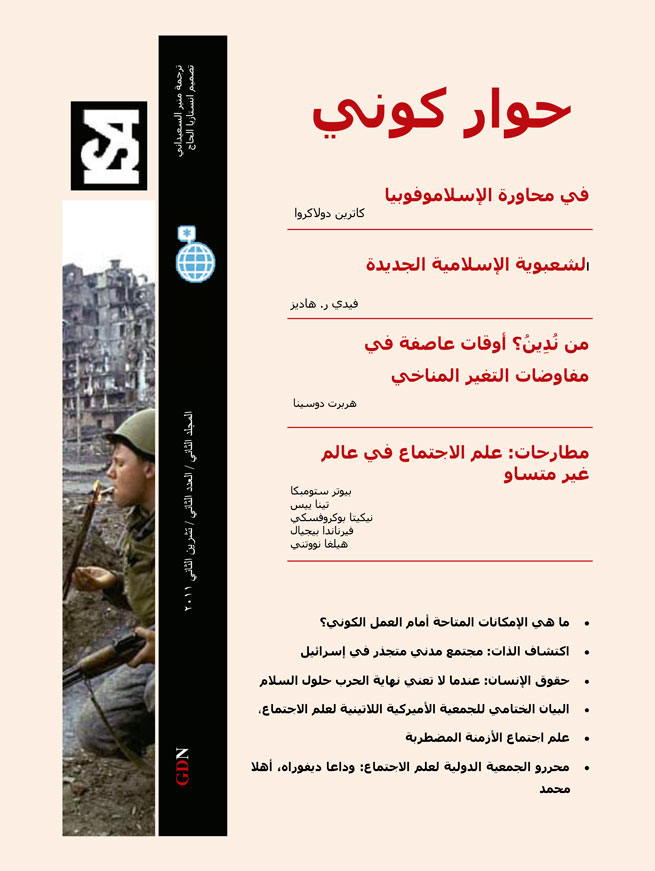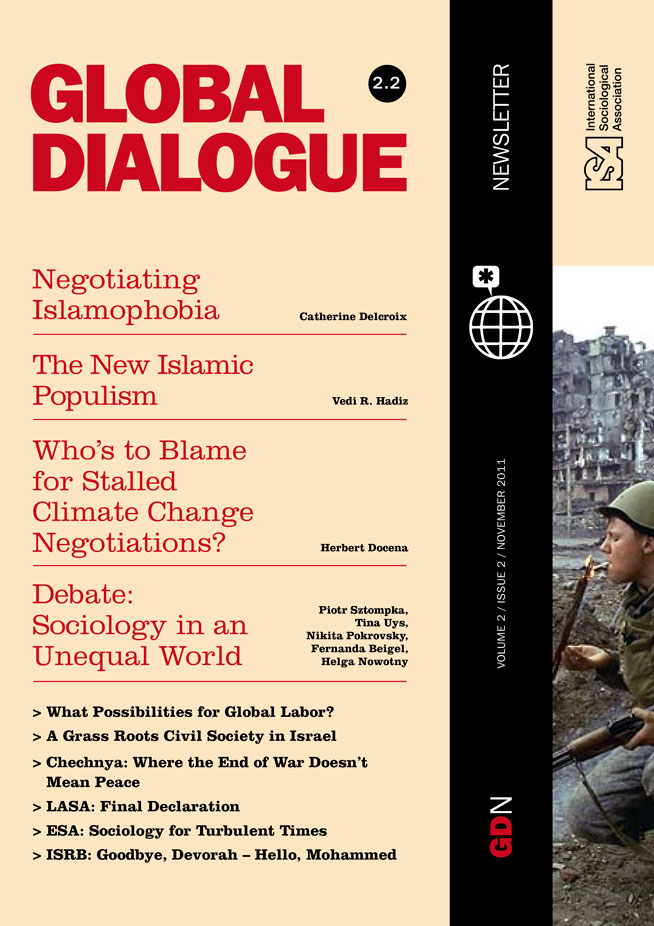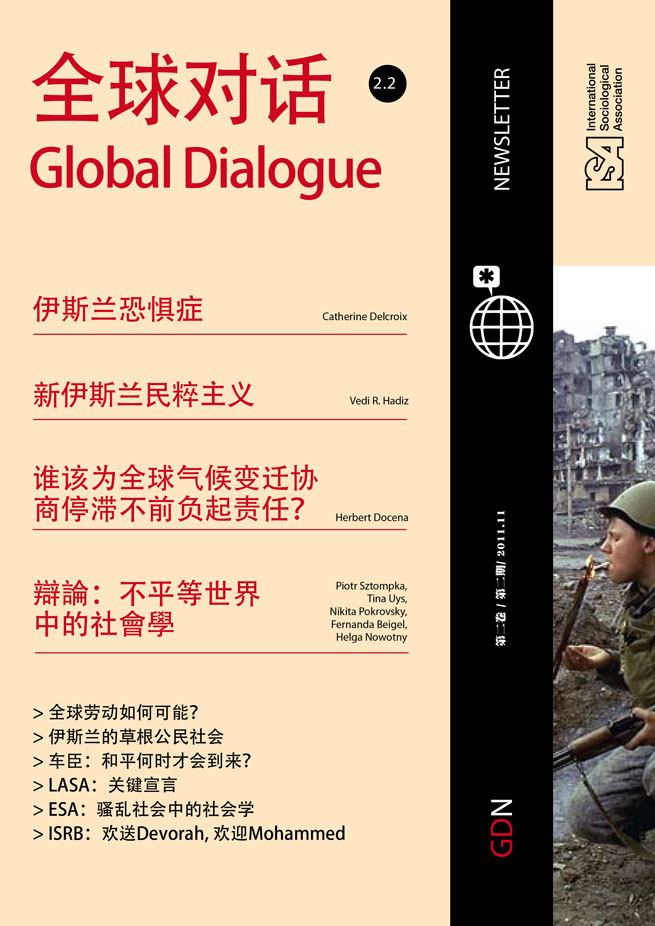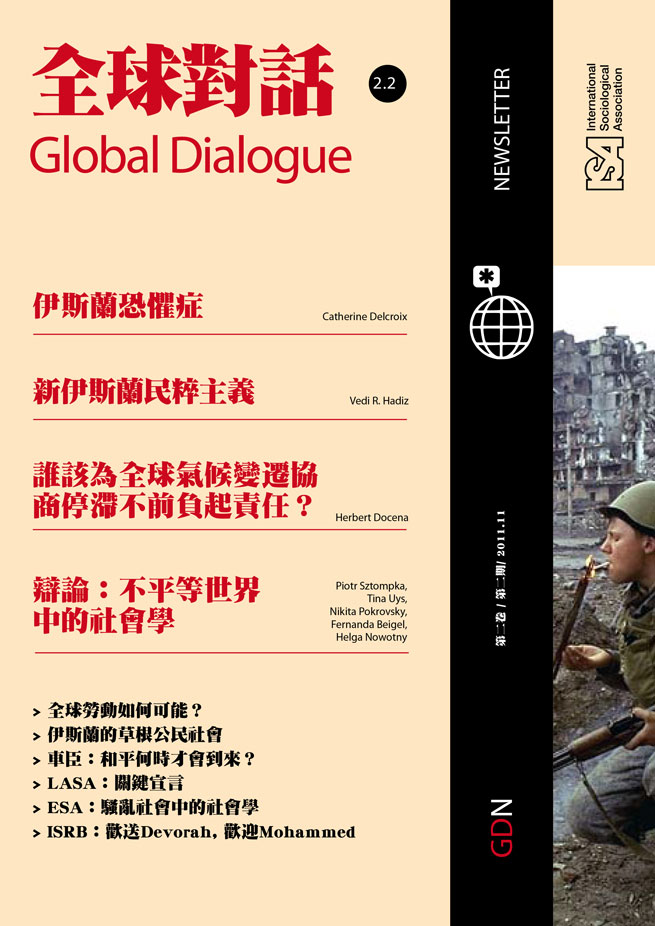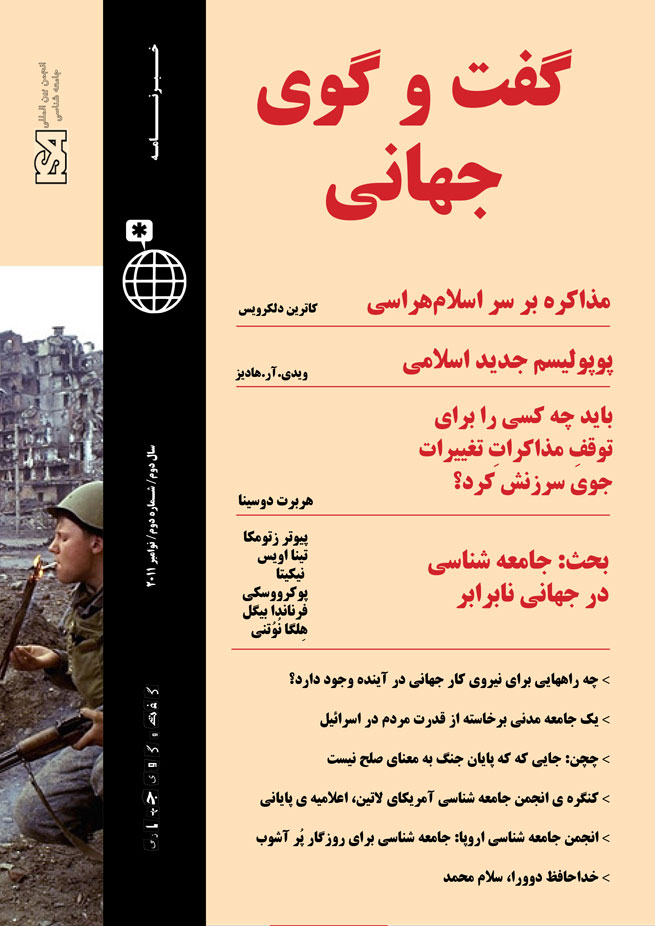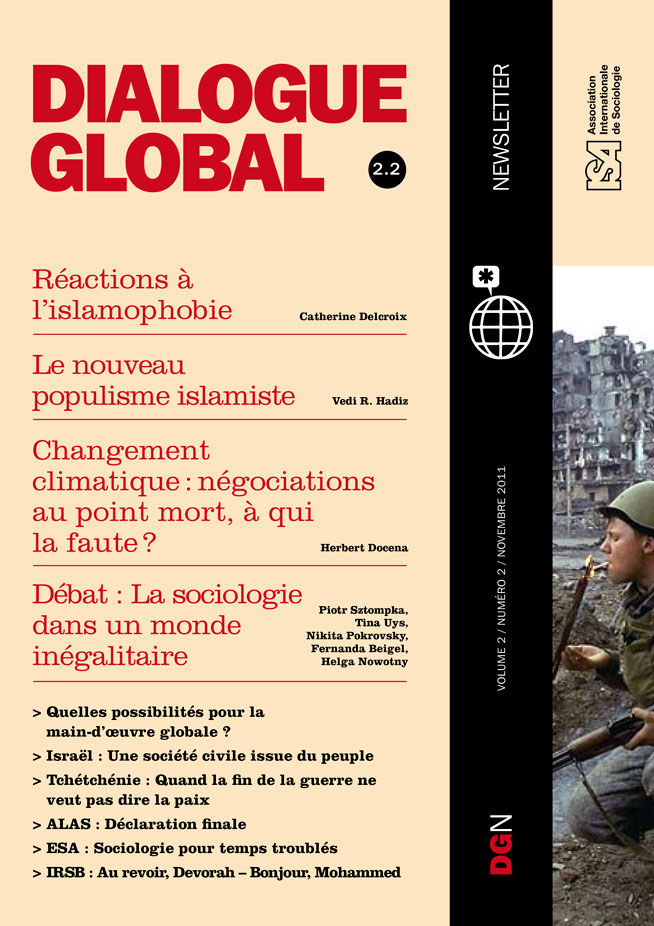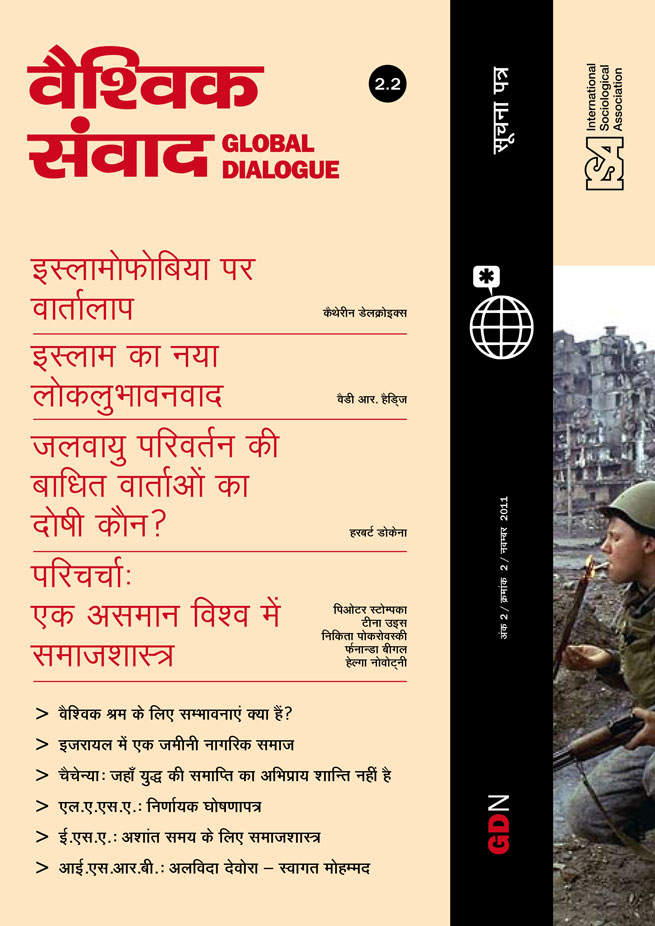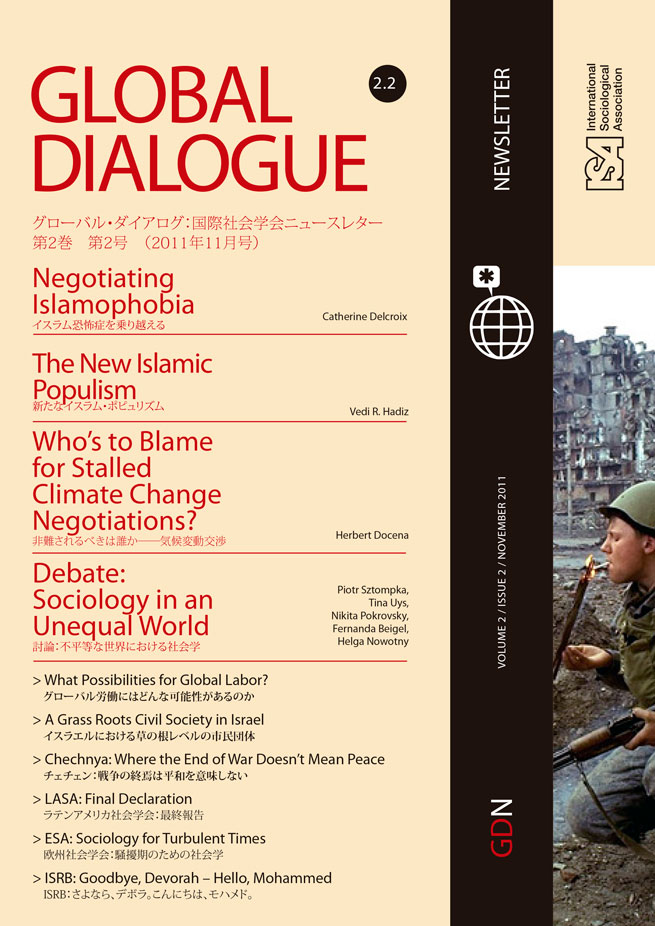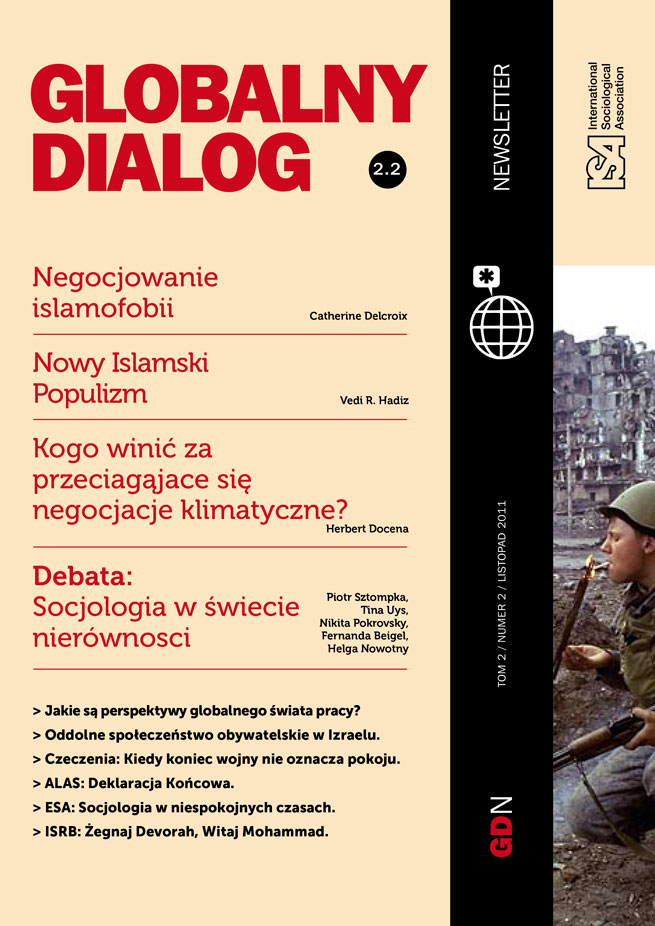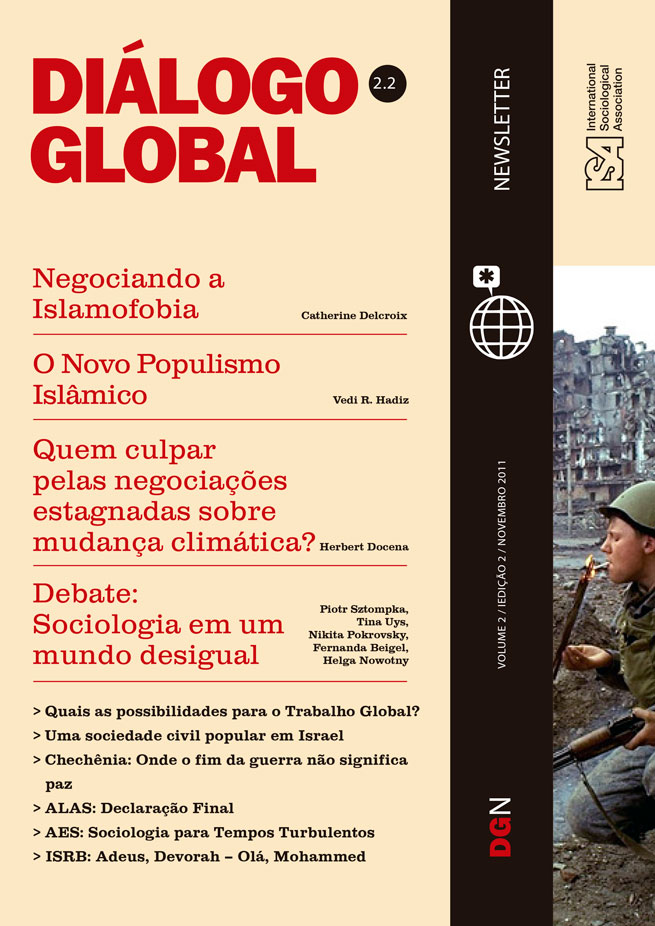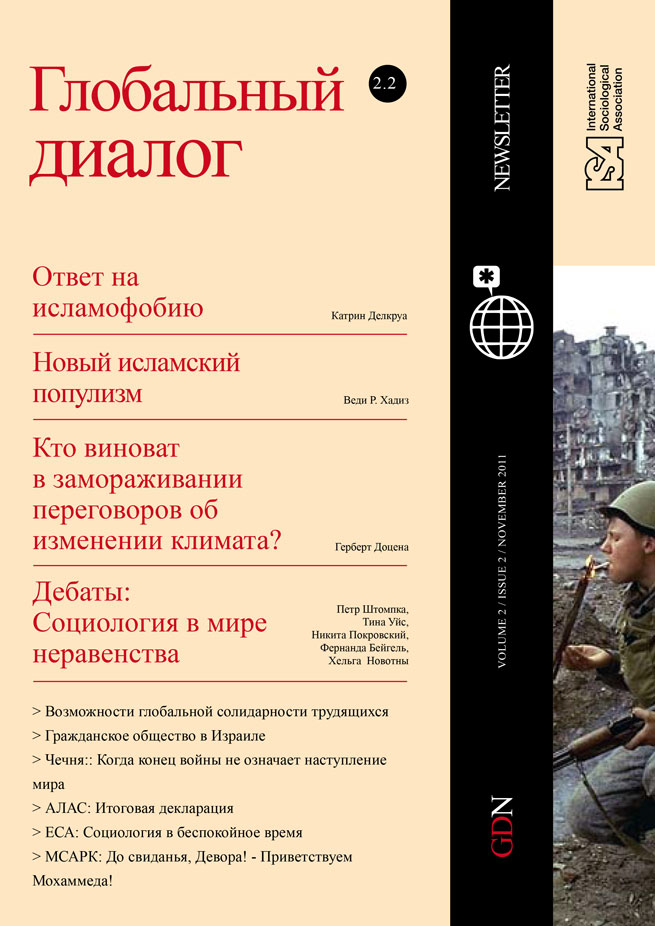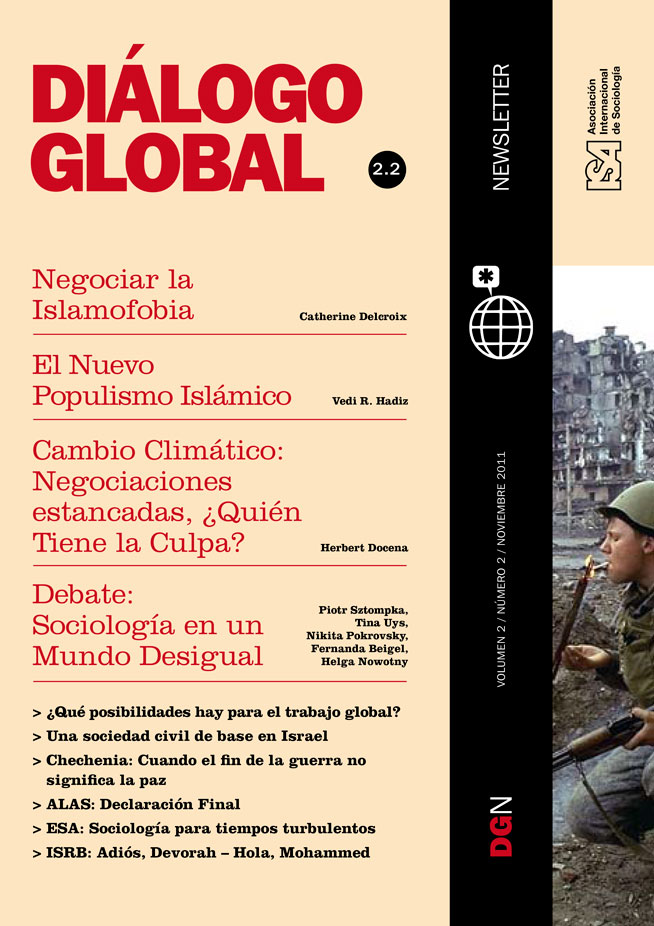Twenty-first century sociology finds itself in an unequal world. But it has many more intellectual and scientific resources than I was led to believe after reading the otherwise stimulating debate between Piotr Sztompka and Michael Burawoy. Let me enumerate just three.
1. Global science and its unequal opportunities
With the intricate assemblage of frontier research, technologies, and their potential and actual use, science has become a global enterprise. Seen by most governments as the motor of economic growth, national prestige and/or military clout, the transformation of our world through science and technology proceeds at an unprecedented rate. The results of such human intervention are new levels of complexity, accompanied by new uncertainties and the emergence of well-known global and local problems.
The social sciences and humanities and, in particular, sociology, are challenged to re-think their own foundations in view of what it means to be human, how to cope with our techno-human condition, and under which communal forms of life. Following the claims of Science and Technology Studies about co-production of the social and natural order, questions of unequal access to information, knowledge, education and democratic participation are crucial in view of the – perhaps utopian – vision of a future global scientific citizenship.
The unequal distribution of resources is mirrored in the unequal access to higher education, research funding and optimal research organizations. The overwhelming majority of scientific publications are still being produced in the North, home to the most productive and prestigious universities and research institutions. Meanwhile, with the so-called STEM (Science, Technology, Engineering and Medicine) disciplines as the main beneficiaries, the picture is rapidly changing as China, India, Brazil and others impressively increase their share. Faced with a host of new societal problems, from climate change to fundamentalism, the importance of social science is not lost on policymakers. While the pervasive rhetoric of innovation is nothing more than a collective bet on a fragile future, more scientific-technological innovation will inevitably entail more social innovation.
2. Sociology’s emancipation from the confinements of disciplinary and national boundaries
Compared to sociology’s beginnings the importance and salience of disciplinary and national identities have declined markedly. Once constitutive for the founding of the discipline, they risk becoming a liability. Science, in the sense of the inclusive German Wissenschaft, is characterized by a dynamic internal plurality. New knowledge often emerges at the interface of established disciplines. Methods, instruments and techniques move creatively across boundaries. Although department-based disciplinary structures remain a powerful disincentive, the expansion of interdisciplinary collaboration is irreversible.
This is not to say that disciplinary boundaries have become completely irrelevant. Establishing a disciplinary identity into which students are socialized still matters for learning what constitutes an interesting sociological problem. A widespread feeling persists that a ‘sociological core’ exists, worthy of being safeguarded against a new academic management intent on subjecting it to norms of efficiency and accountability. This is not only a problem of the West. Given the rapid expansion of the business model of the successful, mostly Anglo-American, university and its eager imitation in the rest of the world, disciplinary boundaries are up for managerial grabs everywhere.
Sociology has proven to be most productive and subversive when spilling over into the territory of other disciplines, insisting on human agency and bringing back society in its bewildering plurality. Although sociology grew up in the shadow of the nation-state, equating the problem of social order with territorial claims, from today’s perspective each national sociology reveals itself as part of an ecosystem of plural knowledges, inevitably shaped by different institutional arrangements and by political, economic and cultural contexts.
Working against its self-provincialization, sociology must continue its emancipation from the confines of disciplinary and national boundaries. It remains to be seen whether it is ready to become a ‘postdiscipline’ by pluralizing and globalizing its practices. Historically, this would follow the shift from a hierarchical order (with the Leviathan as its ancestor) to the heterogeneous flow of social movements and networks with their own ambivalent challenges in the absence of still-to-be-invented institutions.
3. The imaginary real utopia of alternative knowledge
A knowledge utopia must articulate the epistemic assumptions on which it wants to build as well as the criteria for validating its own knowledge production. It must find its place in the very real knowledge hierarchy which it challenges. Among the enduring legacies of the Enlightenment are the strong opposition to all religious and political authorities, its deeply rooted skepticism and the belief that all knowledge, including scientific knowledge, is only temporary, to be succeeded by an evolving expansion of the human understanding of the world. Truth itself – and allowing for plural truths – is in constant evolution. This is the main reason why Enlightenment thought has persisted and why any attempt to devise alternative modes of knowledge production will be up against this powerful, because self-renewing, process.
In many other respects, the Enlightenment needs re-thinking or even re-inventing (Aboagora). It has to come to terms with its own, in-built contradiction between sentiments (including moral sentiments), reason and reasonableness; between the fiction of the autonomous individual and its ties to a changing plurality of collectivities. It must revisit the untenable dichotomy between the natural and the artificial. It must admit the falsity of its universalism, embracing instead the idea of global contextualism.
This is why projects like ‘Provincializing Europe’ (Dipesh Chakrabarty) or ‘Another Knowledge is Possible’ (De Sousa Santos, 2007) are rallying cries to transcend Northern epistemologies and to recognize an epistemic diversity. Such real knowledge utopias are possible because their imaginary is infused with alternative criteria such as human dignity, collective justice, and the capacity to aspire (Arjun Appadurai) or because they include subaltern movements, while resisting the temptation to anchor their utopia in the quicksand of relativism. They will have to engage with existing hierarchies of knowledge production even as these are undergoing rapid transformation through the enormous global educational opportunities offered by the use of new technologies that open up knowledge monopolies, and through access to the co-production of knowledge. Yet I can only agree with the sober conclusion of the Royal Society: ‘English looks set to continue to be the dominant language for research, and the global research community is, by and large, prepared to adapt to this’.
References
Aboagora (2011) http://www.aboagora.fi/
Allenby, Braden R. and Sarewitz, D. (2011) The Techno-Human Condition. Cambridge, Mass.: The MIT Press.
Chakrabarty, D. (2007) Provincializing Europe: Postcolonial Thought and Historical Difference. Princeton: Princeton University Press.
De Sousa Santos, B., ed. (2007) Another Knowledge is Possible: Beyond Northern Epistemologies. London-New York: Verso.
Nowotny, H., P. Scott, and M. Gibbons. (2001) Re-Thinking Science: Knowledge and the Public in an Age of Uncertainty. Oxford: Polity Press.
Nowotny, H. (2006) “The Potential of Transdisciplinarity”, http://www.interdisciplines.org/
Nowotny, H. (2010) “Out of science – out of sync?” Pp.319-322 in World Social Science Report. Paris: UNESCO.
Pollock, S. (2008) “Disciplines, Areas, Postdisciplines.” Paper presented at the Lisbon Conference on Curriculum Development in the Second Phase of the Bologna Process. Lisbon: Calouste Gulbenkian Foundation.
Royal Society (2011) Knowledge, Networks and Nations: Global Scientific Collaboration in the 21st century. London: Royal Society.
Helga Nowotny, President of the European Research Council, Chair of the Scierntific Advisory Board, University of Vienna, Austria, ISA Life Member

